Anti-smog activities
One of the most important measures to implement the Air Protection Program for the Małopolskie Voivodeship was the adoption of the so-called anti-smog resolutions that oblige residents to replace old coal boilers.
The anti-smog resolution for Krakow introducing a total ban on the use of solid fuels was adopted in January 2016 and entered into force on September 1, 2019. The anti-smog resolution for Małopolska was adopted in January 2017. Similar solutions were adopted in the Śląskie Voivodeship (LIFE project partner) and most other regions in Poland. Currently, anti-smog resolutions are in place in 13 out of 16 voivodeships in Poland.
From 2015 to 2019, over 50,000 jobs were exchanged in Małopolska. old coal boilers. Waste incineration and compliance with the requirements of anti-smog resolutions are also regularly inspected. Only in 2019, more than 17,000 were conducted in Małopolska. inspections, of which in 1,300 cases, waste incineration was found and over 500 ash samples were taken for testing.
Network of Eco-managers in communes
As part of the LIFE project, a network of Eco-managers was established in 62 municipalities in Małopolska, whose task is to support residents and municipal authorities in the implementation of anti-smog measures:
- They help residents in preparing applications for co-financing, selecting heating sources and complying with the provisions of anti-smog resolutions.
- They organize meetings with residents and local leaders (doctors, priests, village leaders, firefighters).
- They organize meetings and competitions in schools and kindergartens.
- They carry out local educational activities. They use information materials, leaflets, brochures and posters related to the subject of air protection. They prepare articles in the press and publications on the Internet. They take part in almost 500 radio and TV broadcasts.
- They conduct research on buildings with a thermal imaging camera and inspections of furnaces.
- They prepare applications for co-financing for the commune for investment activities related to air protection.
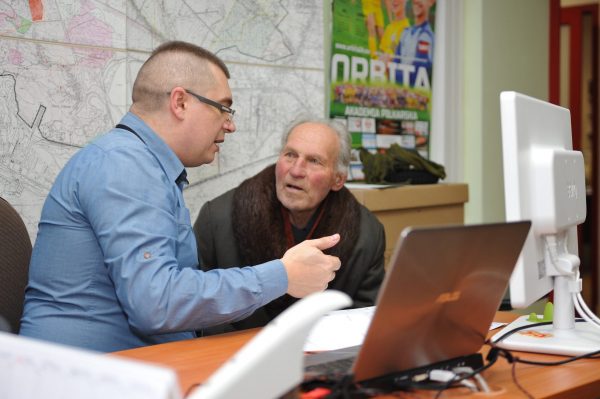
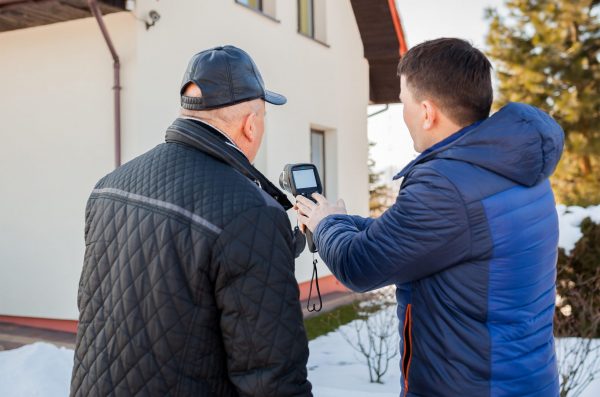
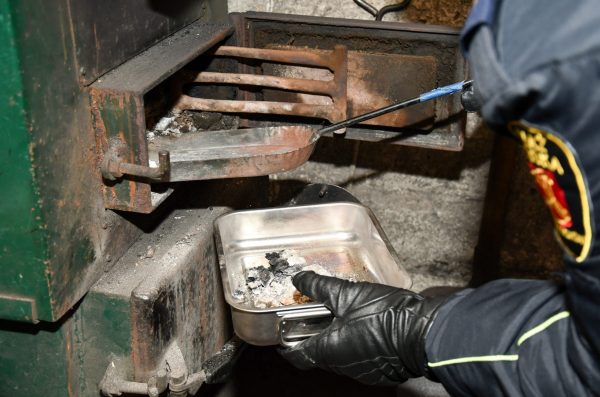
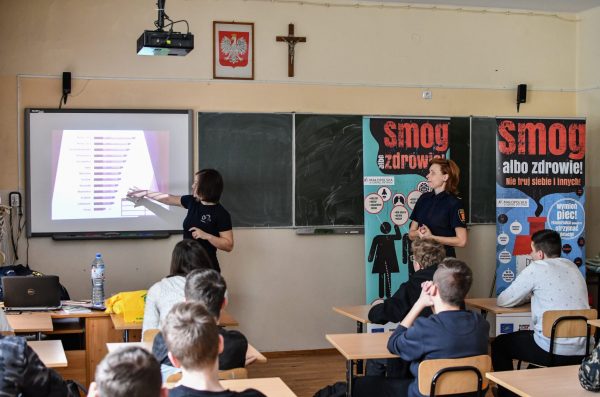
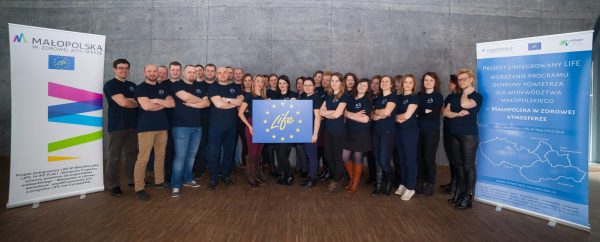
The communes where Eco-Managers are employed achieve better results in terms of boiler replacement than the others. The average number of boilers mentioned in the communes that are partners of the LIFE project is three times higher than the average for the other communes.
Effects of Eco-Managers’ work
participants of organized events
advice given to residents
children participating in workshops and competitions
educational materials provided
thermal imaging studies of buildings
waste burning inspections
supported applications for co-financing
prepared projects for co-financing
Effects of eco-managers’ work in the period: October 2016 – October 2022
Support for activities at the regional and local level
As part of the project, postgraduate studies, trainings and workshops were organized for employees of municipalities responsible for the implementation of the Air Protection Program:
- Two editions of postgraduate studies at the AGH University of Science and Technology for a total of 116 eco-managers and employees of municipalities in the field of air protection and energy.
- Workshops on conducting home furnace inspections for 480 employees of municipalities, city guards and the police, as well as keeping an inventory of heating buildings.
- Training on available co-financing programs for the replacement of furnaces, thermo-modernization of buildings and renewable energy installations.
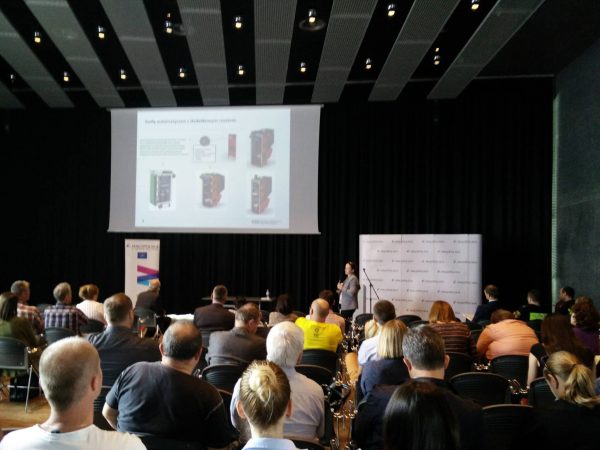

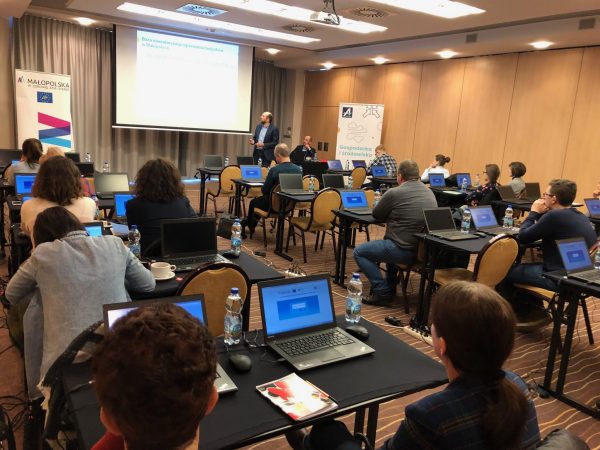
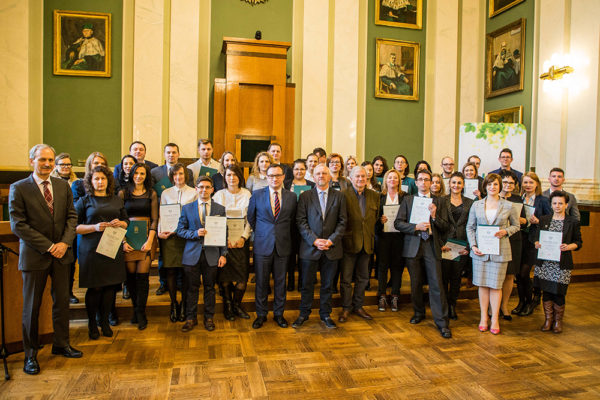
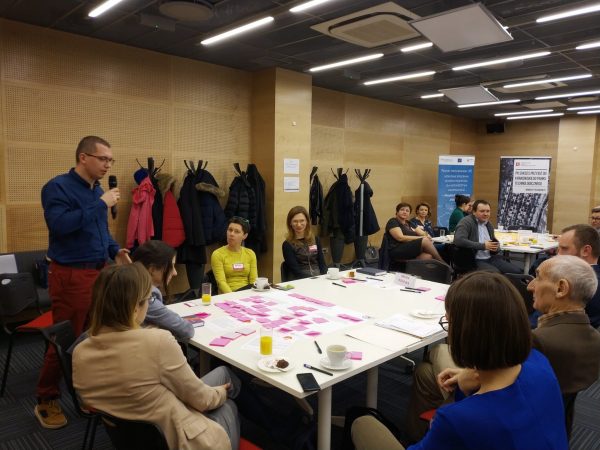
At the regional level, tools were created to support the activities of municipalities and residents for clean air:
- A list of low-emission solid fuel heating devices that meet the ecodesign requirements, on the basis of which the national ZUM list was created.
- Provincial database for inventory of heating sources for buildings, which was the inspiration for the preparation of the Central Emission Register of Buildings.
- The Ecointervention application facilitates reporting incidents of garbage incineration and other violations of environmental regulations.
- The website https://powietrz.malopolska.pl containing, among other things, a knowledge base on energy efficiency and renewable energy sources, a calculator of emissions and heating costs for various technologies and messages on the introduced levels of air pollution risk.
- A guide and an instructional video on conducting waste incineration inspections and compliance with the requirements of the anti-smog resolution.
- Guidelines for determining the technical and operational requirements for RES installations.
- Research on the structure of the vehicle fleet in Krakow at 36 measuring points enabling the determination of the share of individual types of vehicles in the total fleet, broken down by type of engine and held Euro standard.
- Scenarios of introducing restrictions in the operation of solid fuel combustion installations in the area of the Śląskie Voivodeship and the methodology of carrying out an inventory of pollutant emissions for the area of the Śląskie Voivodeship.
Numerous anti-smog information and educational campaigns were conducted:
- Social campaigns “You kill with the smoke from the stove” and “A thief lives in your house” with the use of billboards, video and radio spots, press releases and distribution of educational materials at the local level.
- Educational campaigns in kindergartens combined with the distribution of 1,800 air purifiers to all kindergartens and provincial hospitals with children’s departments in Małopolska.
- Remote lessons for high schools on air pollution, climate change, energy efficiency and renewable energy sources using the Małopolska Educational Cloud.
- The “Our Air” grant competition for non-governmental organizations is focused on education and activation of local communities.
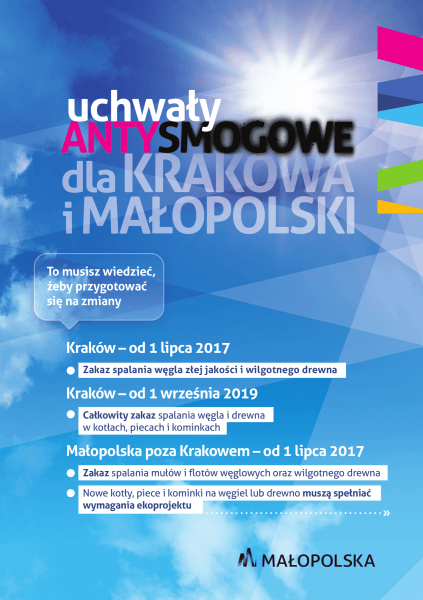
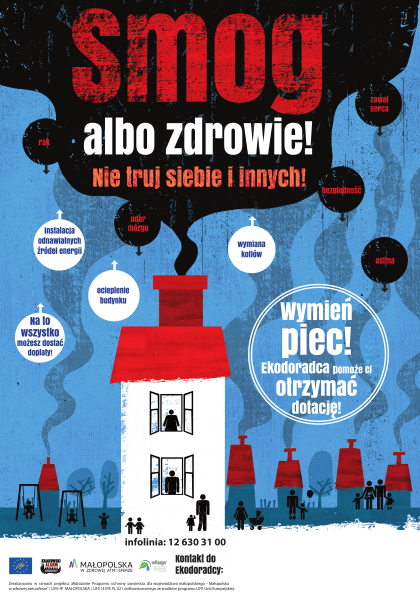
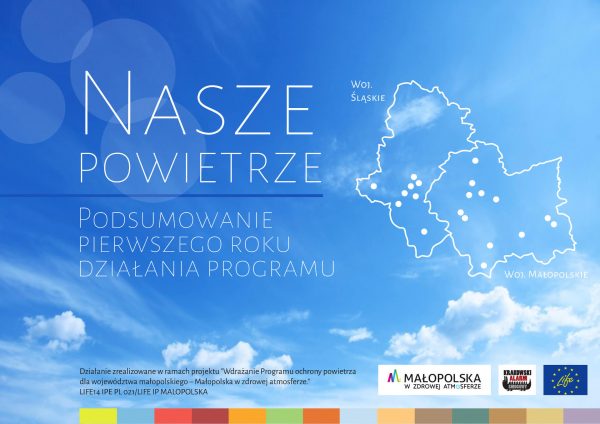
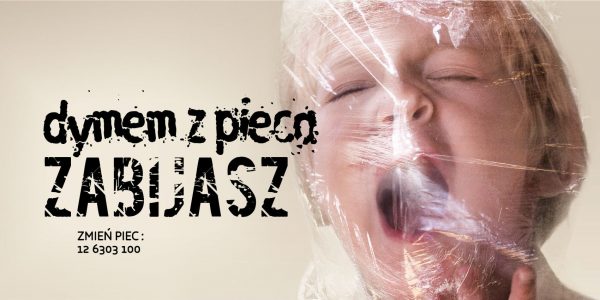
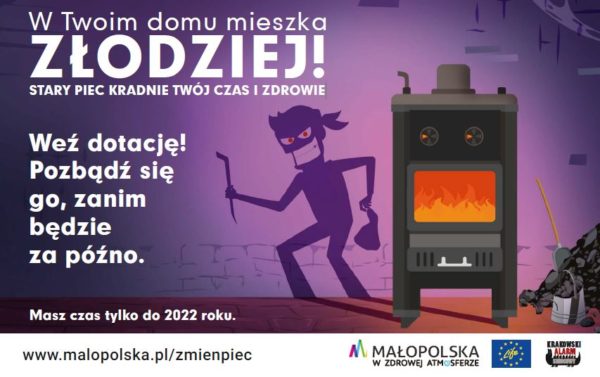
International cooperation and sharing good practice
The implementation of the LIFE IP Małopolska project was indicated as a good practice in the implementation of environmental policy in the European Union in the official Communication of the European Commission entitled “Review of the implementation of the environmental protection policy of 2019: Europe that protects its citizens and contributes to the improvement of their quality of life”.
The project was also promoted as part of the InvestEU campaign in 2017 presenting examples of projects implemented from EU funds that had a positive impact on the environment.
As part of the project, international conferences and workshops are organized to exchange experiences with other projects – in 2017, the Global Clean Air Summit took place in Krakow, and in 2020, workshops for European LIFE projects in the field of air protection were held in Wieliczka.
Project experiences were also presented at international events, including: the COP23 Climate Summit (Bonn, 2017), Clean Air Forum (Paris, 2017 and Bratislava, 2019), sessions of the UN Strategy and Review Working Group (Geneva, 2018), SOFAIR Air Quality conferences (Sofia, 2019) and Saltsjobaden (Götheborg, 2018).
The assumptions and experiences of the LIFE Małopolska project have been used in other LIFE integrated projects in the field of air protection. Twin projects have been launched in Hungary, Bulgaria and Slovakia.
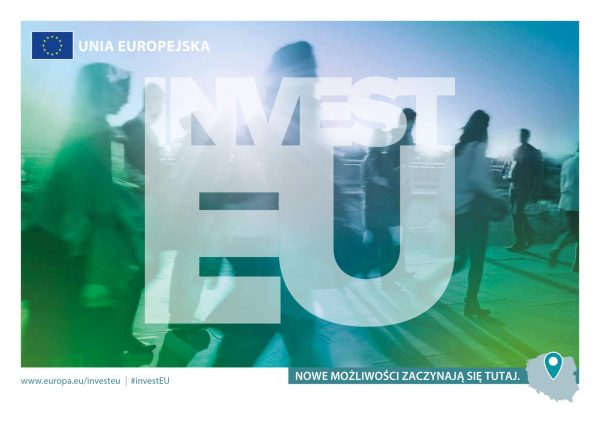

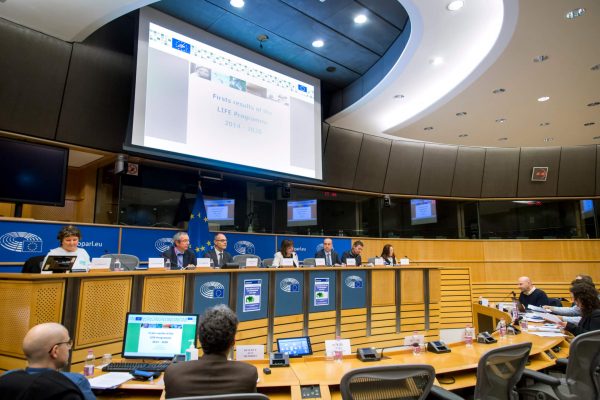
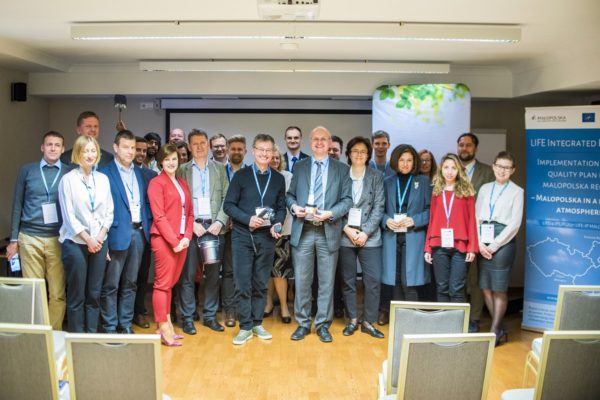
Effects achieved
The partners of the LIFE IP Małopolska project obtained additional funding for investment activities related to the improvement of air protection. The total value of the obtained co-financing is over EUR 1 billion, of which EUR 80 million for the replacement of old boilers, EUR 17 million for the thermal modernization of buildings, EUR 163 million for renewable energy sources and EUR 510 million for low-emission transport.
During the implementation of the LIFE project, the awareness of the inhabitants of Małopolska in the field of air protection increased significantly. Public opinion polls carried out in 2016 and 2018 showed that the awareness of the smog problem in smaller towns of Małopolska increased from 36 to 60 percent. As much as 85 percent of respondents see the need for help provided by eco-managers.
Actions taken in Małopolska in 2015-2018 made it possible to reduce PM10 dust emissions by 1.2 thousand. tonnes, PM2.5 dust by 1.1 thous. tons and benzo (a) pyrene by 590 kg.
The improvement of air quality in Kraków and Małopolska is particularly visible during the heating season from October to March. The average concentration of PM10 dust between the winter season 2014-2015 and the season 2019-2020 decreased in Małopolska by 30%, while in Kraków by as much as 45%.



